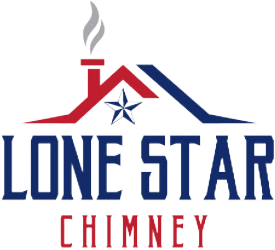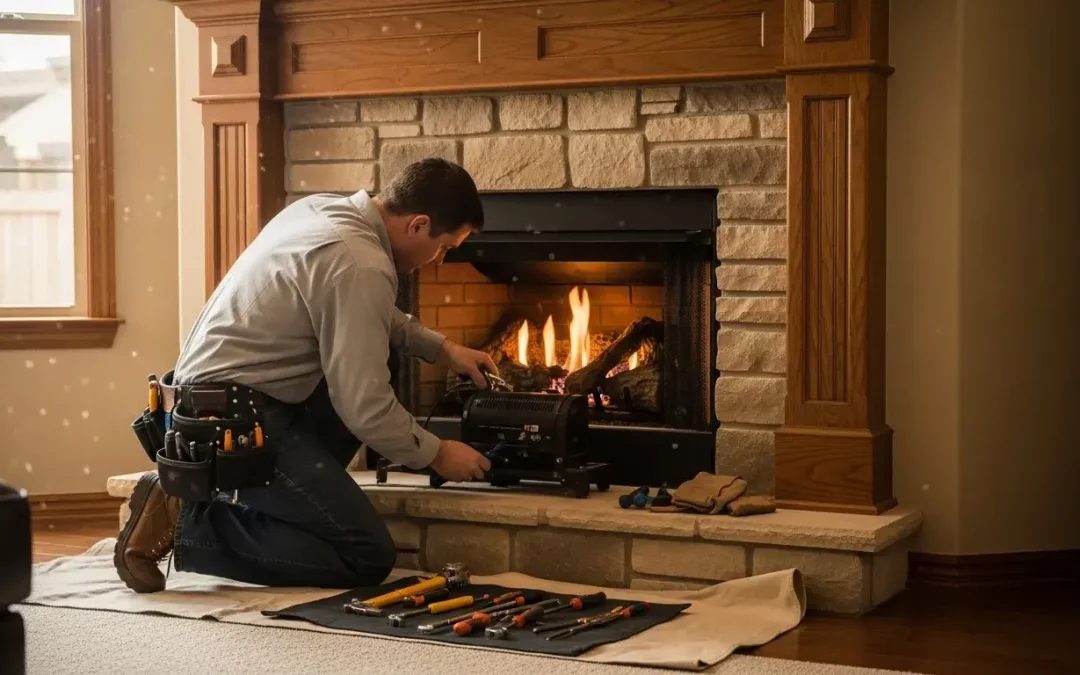Houston homeowners rely on their gas fireplaces for warmth during occasional cold snaps and year-round ambiance. The Gulf Coast climate, combined with high humidity levels and temperature fluctuations, creates unique challenges that can lead to various problems requiring professional gas fireplace repair in Houston. Understanding these common issues helps homeowners identify when professional intervention becomes necessary and prevents minor problems from escalating into costly emergencies.
Frequent Gas Fireplace Repair Issues Affecting Gas Fireplace Repair in Houston Residents
The subtropical climate in Houston presents specific challenges for gas fireplace systems that differ significantly from those experienced in other regions. High humidity levels can cause corrosion in gas lines and control components, while temperature fluctuations stress seals and gaskets throughout the system. These environmental factors contribute to several recurring problems that necessitate gas fireplace repair in Houston homes.
Pilot light problems represent one of the most common reasons homeowners seek gas fireplace repair in Houston. The combination of humidity and dust accumulation can interfere with pilot light ignition and stability. When pilot lights repeatedly go out or fail to ignite consistently, the underlying causes often involve thermocouple malfunction, gas pressure irregularities, or debris accumulation in the pilot assembly. Lone Star Chimney technicians frequently encounter these issues during service calls throughout the Greater Houston area.
Ignition system failures occur more frequently in Houston due to the region’s electrical storm activity and power fluctuations. Electronic ignition systems are particularly sensitive to voltage variations and moisture infiltration. When these systems fail, homeowners may experience delayed ignition, failure to light, or intermittent operation that requires immediate attention from qualified repair professionals.
Gas valve malfunctions can develop over time due to corrosion from humidity exposure and sediment accumulation from the local water supply. These valves control gas flow to the burner system and play critical roles in safety operations. When gas valves begin to malfunction, homeowners may notice irregular flame patterns, difficulty controlling flame height, or complete failure to deliver gas to the burner assembly.
Ventilation and Airflow Problems in Houston Gas Fireplaces
Proper ventilation becomes particularly challenging in Houston’s humid environment, where condensation and debris accumulation can block venting systems and create dangerous operating conditions. These ventilation issues often require specialized gas fireplace repair in Houston to restore safe operation and prevent carbon monoxide hazards.
Blocked venting represents a serious safety concern that requires immediate professional attention. Houston’s frequent storms can deposit leaves, debris, and even small animals in chimney and vent systems. Additionally, the region’s high humidity can promote algae and mold growth within venting components, gradually restricting airflow and creating backdraft conditions.
Damper problems frequently develop in Houston’s climate due to rust and corrosion caused by moisture infiltration. When dampers fail to operate properly, they can trap combustion gases inside the home or allow outside air to enter the fireplace system. Lone Star Chimney specialists regularly address damper issues that result from the area’s challenging environmental conditions.
Draft problems can develop when Houston’s atmospheric pressure changes during weather fronts affect the natural draft in fireplace systems. These pressure variations can cause smoke spillage, poor combustion, and inefficient operation that requires professional diagnosis and repair to resolve safely.
Safety System Malfunctions Requiring Professional Repair
Modern gas fireplaces incorporate multiple safety systems designed to prevent dangerous operating conditions. However, these safety components can malfunction due to age, environmental exposure, or component wear, necessitating immediate gas fireplace repair in Houston to maintain safe operation.
Thermocouple failures rank among the most frequent safety system problems encountered by Houston homeowners. These devices monitor pilot light operation and automatically shut off gas flow if the pilot flame extinguishes. High humidity and temperature fluctuations can cause thermocouples to degrade prematurely, leading to intermittent or complete pilot light failure.
Oxygen depletion sensors protect occupants by monitoring indoor air quality and shutting down the fireplace if oxygen levels drop too low. These sensors can become contaminated by dust, pet dander, or cleaning products commonly used in Houston homes, causing false readings that interfere with normal fireplace operation.
Pressure switches verify proper venting operation before allowing gas flow to the main burner. These switches can malfunction due to moisture infiltration or debris accumulation in sensing lines, preventing the fireplace from operating even when venting systems function correctly. Lone Star Chimney technicians have extensive experience diagnosing and repairing these complex safety system interactions.
Combustion and Flame Pattern Issues
Proper combustion requires precise gas-to-air ratios that can be affected by various factors common in Houston’s environment. When combustion becomes incomplete or inefficient, homeowners may notice unusual flame colors, sooting, or odors that indicate the need for professional gas fireplace repair in Houston.
Yellow or orange flame colors often indicate incomplete combustion caused by insufficient air supply, gas pressure problems, or burner contamination. While yellow flames may appear more attractive than the blue flames produced by proper combustion, they generate carbon monoxide and other dangerous byproducts that pose serious health risks to occupants.
Sooting occurs when combustion byproducts accumulate on fireplace components, glass doors, or surrounding surfaces. This accumulation not only creates cosmetic problems but also indicates combustion inefficiency that can worsen over time without professional intervention. Houston’s humid climate can accelerate soot formation and make cleaning more challenging for homeowners.
Unusual odors during fireplace operation may indicate gas leaks, incomplete combustion, or contamination of gas lines. These odors should never be ignored and require immediate attention from qualified repair professionals. Gas leaks pose serious safety hazards, while combustion odors can indicate carbon monoxide production that threatens occupant health.
Control System and Remote Operation Problems
Modern gas fireplaces often incorporate sophisticated control systems that can experience malfunctions due to electronic component failure, interference, or programming issues. These problems frequently require specialized knowledge and tools for proper gas fireplace repair in Houston.
Remote control malfunctions can result from battery failure, signal interference, or receiver component problems. Houston’s dense urban environment creates significant electronic interference that can affect wireless communication between remotes and fireplace control systems. Additionally, humidity can cause corrosion in battery contacts and electronic components.
Thermostatic controls may malfunction due to calibration drift, sensor contamination, or electronic component failure. When these systems fail to maintain desired temperatures or respond erratically to temperature changes, professional diagnosis becomes necessary to identify whether problems lie in sensors, control boards, or programming settings. Lone Star Chimney maintains the diagnostic equipment necessary to troubleshoot these complex control systems effectively.
Wall switch problems often develop due to loose connections, switch wear, or compatibility issues with modern electronic control systems. These seemingly simple components play critical roles in fireplace operation and safety, making proper repair essential for reliable system function.
Environmental Factors Affecting Gas Fireplace Performance in Houston
Houston’s unique environmental conditions create specific challenges for gas fireplace systems that homeowners in other regions rarely encounter. Understanding these factors helps explain why certain problems develop and why regular maintenance becomes particularly important for local gas fireplace systems.
High humidity levels throughout much of the year promote corrosion in gas lines, control components, and venting systems. This moisture can also interfere with electronic ignition systems and cause premature failure of safety components. The combination of humidity and temperature fluctuations creates expansion and contraction cycles that stress seals, gaskets, and joint connections throughout gas fireplace systems.
Hurricane season brings additional challenges that can necessitate gas fireplace repair in Houston. High winds can damage exterior venting components, while flooding can contaminate gas lines and control systems with water and debris. Even tropical storms that don’t reach hurricane strength can create power fluctuations that damage electronic components and atmospheric pressure changes that affect venting performance.
Air quality concerns in the Houston metropolitan area can accelerate the accumulation of contaminants in gas fireplace systems. Industrial emissions, vehicle exhaust, and pollen create challenging operating environments for combustion systems. These contaminants can clog burner ports, contaminate sensors, and interfere with proper combustion air supply.
Seasonal temperature variations, while less extreme than in northern climates, still create thermal stress in gas fireplace components. The transition from air conditioning season to occasional heating needs can reveal problems that developed during periods of non-use. Lone Star Chimney recommends seasonal maintenance to address these transition-related issues before they require emergency repair services.
Preventive Maintenance Strategies for Houston Gas Fireplaces
Implementing comprehensive preventive maintenance programs helps Houston homeowners avoid many common problems that otherwise require emergency gas fireplace repair in Houston. The region’s challenging environmental conditions make regular maintenance particularly important for safe and efficient operation.
Annual professional inspections provide opportunities to identify developing problems before they cause system failures or safety hazards. These inspections should include comprehensive evaluation of gas lines, control systems, venting components, and safety devices. Professional technicians can detect early signs of corrosion, wear, or contamination that homeowners might miss during casual observation.
Regular cleaning schedules become particularly important in Houston’s dusty, humid environment. Burner components, control systems, and venting pathways require periodic cleaning to remove accumulated debris and contaminants. Professional cleaning services ensure that all components receive appropriate attention without risking damage to sensitive electronic systems.
Filter replacement programs help maintain proper air quality for combustion systems and protect sensitive components from contamination. Houston’s air quality challenges make regular filter changes more critical than in many other regions. Lone Star Chimney can establish filter replacement schedules appropriate for local conditions and individual usage patterns.
Component lubrication and adjustment services address the effects of humidity and temperature variations on moving parts within gas fireplace systems. Proper lubrication prevents corrosion and ensures smooth operation of dampers, control linkages, and safety devices. These services often prevent minor adjustments from becoming major repair requirements.
Safety Considerations for Houston Gas Fireplace Owners
Gas fireplace safety takes on additional importance in Houston due to the region’s climate conditions and the tendency for homes to remain sealed during air conditioning season. Understanding safety requirements helps homeowners recognize when professional gas fireplace repair in Houston becomes necessary to maintain safe operating conditions.
Carbon monoxide detection becomes particularly critical for Houston homes with gas fireplaces, especially during periods when homes remain sealed for climate control. Faulty venting or incomplete combustion can create dangerous carbon monoxide levels that pose serious health threats to occupants. Professional repair services ensure that combustion systems operate efficiently and vent properly to prevent gas accumulation.
Gas leak detection requires immediate attention whenever unusual odors occur near gas fireplace installations. Houston’s humid climate can mask gas odors or create conditions where gas accumulates in unexpected locations. Homeowners should never attempt to locate or repair gas leaks themselves but should immediately contact qualified repair professionals and shut off gas supplies at meter locations.
Electrical safety considerations become particularly important for electronic ignition systems and control components. Houston’s frequent electrical storms can damage these sensitive systems and create fire hazards if not properly grounded and protected. Professional installation and repair ensure that electrical components meet current safety codes and operate reliably in challenging weather conditions.
Emergency shutdown procedures should be familiar to all household members and visitors. Gas fireplace systems include multiple safety shutoffs that can prevent dangerous conditions during emergencies. Lone Star Chimney provides training on proper emergency procedures during service calls and system installations.
Diagnostic Techniques Used by Houston Repair Professionals
Professional gas fireplace repair in Houston requires specialized diagnostic equipment and techniques to identify problems accurately in the challenging local environment. Understanding these diagnostic approaches helps homeowners appreciate the complexity of modern gas fireplace systems and the importance of qualified repair services.
Electronic diagnostic tools allow technicians to monitor gas pressures, electrical voltages, and combustion efficiency throughout fireplace systems. These instruments can detect intermittent problems that might not be apparent during casual observation but could lead to safety hazards or system failures if left unaddressed.
Combustion analysis equipment measures the efficiency and safety of burning processes within gas fireplace systems. These tests reveal whether combustion occurs completely and safely, identifying problems that could produce carbon monoxide or other dangerous byproducts. Professional analysis ensures that repairs restore both efficient operation and safe combustion characteristics.
Pressure testing procedures verify the integrity of gas lines and connections throughout fireplace installations. Houston’s environmental conditions can cause gradual deterioration of seals and connections that might not produce obvious leaks but could create safety hazards over time. Professional pressure testing identifies these developing problems before they become dangerous.
Thermal imaging technology allows technicians to identify heat distribution problems, air leaks, and component malfunctions that might not be visible through conventional inspection methods. This advanced diagnostic capability helps ensure that gas fireplace repair in Houston addresses all underlying issues rather than just obvious symptoms.
Airflow measurement tools verify proper operation of venting systems and combustion air supplies. These measurements ensure that repaired systems will operate safely and efficiently under various weather conditions common in the Houston area. Lone Star Chimney utilizes these advanced diagnostic techniques to provide comprehensive repair services that address both immediate problems and potential future issues.
Modern Gas Fireplace Technologies and Repair Considerations
Contemporary gas fireplace systems incorporate advanced technologies that provide improved efficiency, convenience, and safety features. However, these sophisticated systems also present unique repair challenges that require specialized knowledge and equipment for proper gas fireplace repair in Houston.
Smart home integration capabilities allow gas fireplaces to connect with home automation systems and smartphone applications. While these features provide enhanced convenience and control, they also introduce additional complexity that can malfunction due to network connectivity issues, software problems, or compatibility conflicts with other home systems.
Variable flame height controls and realistic flame patterns require precise gas valve operation and specialized burner designs. When these systems malfunction, repair requires understanding of both mechanical gas control systems and electronic feedback mechanisms that monitor and adjust flame characteristics. Professional repair ensures that these advanced features continue to operate safely and efficiently.
High-efficiency combustion systems incorporate advanced heat exchangers and combustion air management that can be affected by Houston’s environmental conditions. These systems require specialized maintenance and repair techniques to maintain optimal efficiency ratings and prevent premature component failure.
Advanced safety systems in modern gas fireplaces include multiple redundant protection mechanisms that can interact in complex ways. When one safety system malfunctions, it may affect the operation of other protective devices, requiring comprehensive system analysis to restore proper operation. Lone Star Chimney technicians receive ongoing training to stay current with evolving gas fireplace technologies and repair requirements.
Selecting Qualified Repair Services in Houston
Choosing appropriate repair services for gas fireplace problems requires careful evaluation of qualifications, experience, and local knowledge. The complexity of modern gas fireplace systems and Houston’s challenging environmental conditions make professional expertise essential for safe and effective repairs.
Licensing verification ensures that repair technicians meet minimum qualification standards for gas appliance work. Texas requires specific licensing for gas appliance installation and repair, and homeowners should verify that repair services maintain current licenses appropriate for the scope of work required. Proper licensing demonstrates competency in both technical skills and safety procedures.
Insurance coverage protects homeowners from liability during repair work and provides assurance that repair services maintain professional standards. Qualified repair companies carry both general liability and workers’ compensation insurance appropriate for gas appliance work. This coverage protects homeowners from potential damage claims and ensures that injured workers receive appropriate care.
Experience with Houston climate conditions becomes particularly important for gas fireplace repair services. Local environmental factors create unique challenges that may not be familiar to technicians from other regions. Repair services with extensive Houston area experience understand these local conditions and can provide more effective solutions for recurring problems.
Manufacturer certification demonstrates specialized training and qualification for specific gas fireplace brands and models. Many manufacturers provide technical training and certification programs that ensure repair technicians understand the unique characteristics and requirements of their products. These certifications often provide access to specialized diagnostic equipment and technical support resources.
Emergency service availability becomes important for safety-related gas fireplace problems that cannot wait for regular business hours. Gas leaks, carbon monoxide concerns, and other safety issues require immediate attention regardless of timing. Established repair services like Lone Star Chimney maintain emergency response capabilities to address urgent safety concerns promptly.
Service warranty provisions demonstrate repair service confidence in their work quality and provide protection for homeowners’ repair investments. Comprehensive warranties should cover both parts and labor for reasonable periods following repair completion. These warranties also indicate that repair services stand behind their work and will address any problems that develop due to repair quality issues.
Ongoing maintenance programs help prevent many problems that otherwise require emergency gas fireplace repair in Houston. Professional maintenance services can establish regular service schedules that address the unique requirements of local environmental conditions and individual usage patterns. These programs often provide priority service and reduced rates for emergency repairs when they become necessary despite preventive maintenance efforts.


